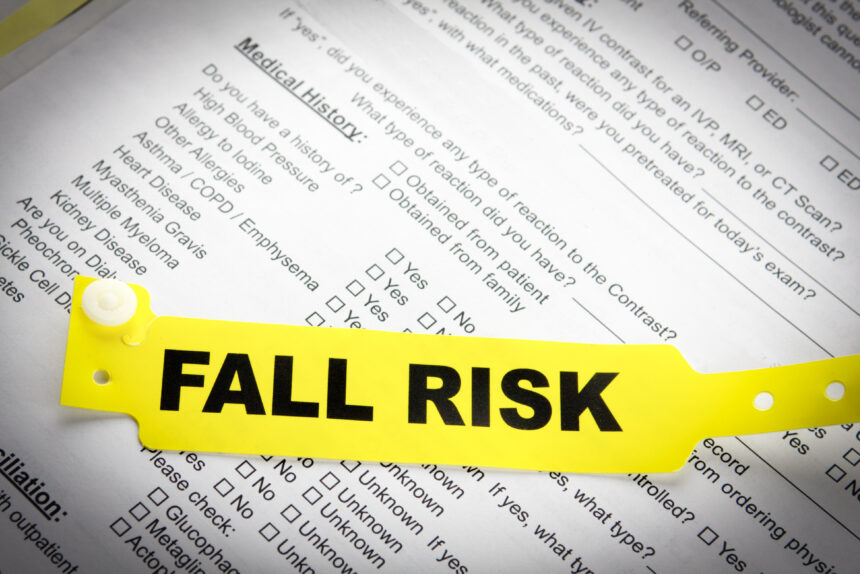A Biased View of Dementia Fall Risk
The Definitive Guide for Dementia Fall Risk
Table of ContentsUnknown Facts About Dementia Fall RiskDementia Fall Risk - The FactsThe Single Strategy To Use For Dementia Fall RiskThe Definitive Guide to Dementia Fall RiskThe Best Guide To Dementia Fall Risk
You may be worried due to the fact that you have actually had a loss prior to or due to the fact that you have actually discovered you're starting to really feel unstable on your feet. You could have seen changes to your health, or just really feel like you're decreasing a little. Whatever the factor, it isn't unusual to end up being cautious and lose confidence, and this can quit you doing the points you utilized to do and make you feel much more isolated.If you have actually had a loss or you've started to feel unstable, tell your doctor even if you really feel great otherwise. Your doctor can examine your equilibrium and the method you walk to see if enhancements can be made. They might be able to refer you for a falls threat evaluation or to the falls avoidance service.
This details can be obtained with interviews with the person, their caretakers, and an evaluation of their medical records. Begin by asking the individual concerning their background of falls, consisting of the frequency and circumstances of any kind of current falls. Dementia Fall Risk. Ask about any type of mobility issues they may experience, such as unsteady or problem walking
Conduct a complete review of the person's medicines, paying certain interest to those recognized to boost the risk of drops, such as sedatives or medications that reduced high blood pressure. Figure out if they are taking multiple drugs or if there have been current changes in their medicine regimen. Review the individual's home setting for prospective dangers that could raise the danger of drops, such as poor lights, loose rugs, or absence of grab bars in the restroom.
The 6-Minute Rule for Dementia Fall Risk
Guide the individual with the loss danger evaluation kind, describing each concern and videotaping their responses precisely. Make certain that the individual comprehends the function of the analysis and feels comfortable offering truthful responses. Determine the complete threat rating based upon the responses offered in the evaluation type. Figure out the person's danger classification (reduced, tool, or high) based upon the overall rating and the existence of automated high-risk condition aspects.
Frequently check the individual's progression and reassess their danger of drops as required. Supply ongoing education and learning and support to promote safety and security and decrease the threat of drops in their daily living tasks.
Many researches have revealed that physical therapy can aid to minimize the risk of dropping in click for more adults ages 65 and older. In a brand-new study (that considered falls risk in ladies ages 80 and older), researchers determined the economic effect of choosing physical therapy to stop drops, and they found that doing so conserves $2,144, consisting of all the hidden prices of your time, pain, missed life events, and the dollars spent for services.
Indicators on Dementia Fall Risk You Need To Know
Evaluating your balance, stamina, and walking capability. A home security evaluation. Based on the analysis results, your physical specialist will certainly create a strategy that is customized to Source your certain demands.
Older grownups that have problem strolling and speaking at the exact same time are at a higher risk of falling. Dementia Fall Risk. To help increase your safety during daily tasks, your physical specialist may design a training program that will challenge you to maintain standing and strolling while you do another job. Examples include walking or standing while counting backward, having a discussion, or lugging a bag of grocery stores
Set goals for raising their physical task. Exercise more to raise their stamina and equilibrium. These programs frequently are led by volunteer instructors.
The Best Strategy To Use For Dementia Fall Risk

Measles, or rubeola, is a very transmittable, intense viral transmittable illness triggered by the measles infection. Some individuals believe of measles as just a rash and fever that improves in a couple of days; nonetheless, measles can trigger severe health and wellness problems, especially in children more youthful than 5-years-old. The most effective security against measles is the measles, mumps, and rubella (MMR) vaccine.
Falls are a typical root cause of injury amongst older grownups. According to the CDC, in one year alone, fall-related injuries contributed to over $50 billion in medical prices (Dementia Fall Risk). In health center settings, older adults go to especially high risk of falls due to the fact that their minimized movement from being confined to an area or bed.
Dementia Fall Risk for Beginners

She has a medical background of seizure condition and hypertension. She is receiving an IV infusion and taking Gabapentin and Lasix. She has no background of falls, her stride is consistent, and she voids with no problems. The previous nurse states that she asks for support to the bathroom when she requires to go.
Instances of typical fall interventions/measures consist of: Ensuring a person's vital items are accessible. Putting the individual's bed rails up with the alarm system on. Helping a client while they're obtaining up from bed. Past recognizing how to make use of the Johns Hopkins Fall Risk Evaluation Tool, it's crucial that facilities integrate its usage into a more detailed loss avoidance strategy.